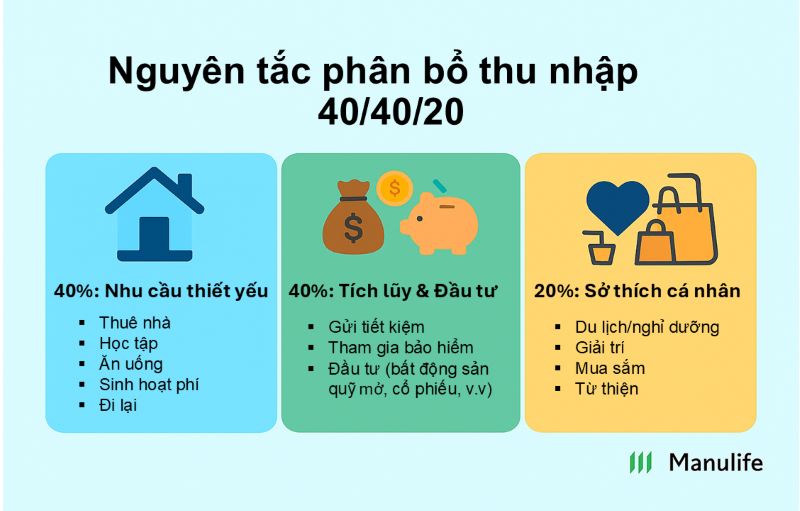Becoming the leader of the Marketing group when he turned 25, Phan Tan Viet (HCMC) set a goal of having a city house at the age of 30. But after more than 2 years, he admitted that he has not had any significant accumulation. "Every month I receive my salary, I save a sum of money in advance, and I will spend the rest. But the problem is that every time I see cheap air tickets such as books and shoes for sale, I buy them, and often travel, go to restaurants... and save money to almost all of them to pay for credit cards, Viet said.
As for Le Thi Ngoc Vy (Hanoi), although she has been working for more than 4 years with an income of nearly 20 million VND per month, she still has not had " anything to save". "Last month, my car was swept away, luckily it was not too serious, but I also had to borrow a little from you to pay for the hospital fees because I didn't have enough money, and I didn't dare to ask my parents," Vy said. She admitted that her frequent so thich of "hunting for sales", "going to" concerts and "healing" tours makes Vy quite passive when needing a certain amount of money.

The case of Viet and Vy is not uncommon. According to a survey published by Navigos in 2025, the average salary of "experienced/unmanaged" workers ranges from 12.7 to 38.1 million VND per month, depending on the industry and region. For some specific industry groups, this number may be higher. However, many young people still face a "missing before and after" situation due to uncontrolled spending habits and not knowing how to manage income.
Financial rules 40/40/20
According to financial experts, for Gen Z, the problem is largely not income, but the way they spend. To avoid falling into the situation of " spending all your money before the salary period", young people can apply the 40/40/20 financial rule, in which 40% of their monthly income is spent on essential needs, 40% on accumulation and investment purposes, the remaining 20% is spent on personal interests and other expenses. This allocation method can be refined based on each person's goals and reality.
Billionaire Grant Cardone, who suggested the 40/40/20 formula, said: If you spend 40% of your total income and use that money to invest - not to cover living expenses - I guarantee you will create wealth for yourself. Cardone also said: "This rule helps ensure that you don't spend money too early, don't spend money on things ahead of schedule."

In Vietnam, especially in big cities, Gen Z can balance fixed expenses such as rent, food, travel... not exceeding 40% of total income. As for the 40% income spent on savings and investment according to the suggested formula, young people can deduct 15% to deposit in banks, 15% to participate in health insurance and life insurance packages, and the remaining 10% to invest in real estate or participate in open-end funds and stocks.
Nguyen Thanh Nhan, 27 years old, a designer at a furniture company, shared: To control my spending, on the day I received my salary, the first thing I did was not pay the electricity and water bill, nor go to the supermarket but immediately deduct 15% of my salary into my savings account, deduct 10% of the Manulife insurance premium I was participating in, and 10% into the MDI Dynamic Investment Fund. Then calculate the remaining expenditure. In my opinion, savings and insurance should be a mandatory cost, not a part after spending.
Inflation, medical costs, housing, spending... can all be a pressure for young people. However, financial experts say that if disciplined in financial management, Gen Z can completely take the initiative for their lives and "reach the finish line" with big goals. Starting with today's small changes such as reducing unnecessary coffee sessions, limiting emotional sales, focusing on regular investment, choosing the right protection solution, etc., you can make a clear change after the age of 30.











